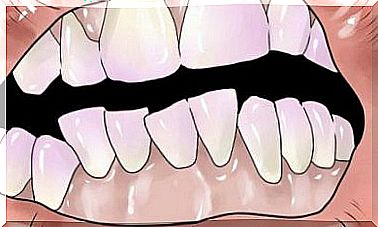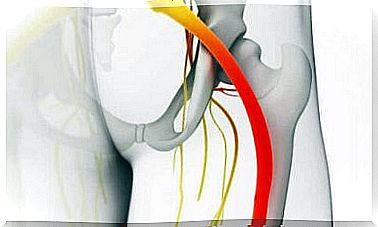7 Bladder Cancer Symptoms To Watch Out For

Your bladder is an organ shaped like a pouch. This organ is particularly characterized by its ability to contract and expand when emptying and storing the urine produced by the kidneys. In this article we are going to talk about the symptoms of bladder cancer.
Cancer in the bladder occurs when malignant cells begin to grow uncontrollably in the inner membrane to form tumors.
Most cases of bladder cancer arise in the urothelium, the innermost layer of the bladder wall.
To prevent tragic consequences, it is important to detect this disease as soon as possible. It can very quickly spread to other parts of your bladder and surrounding tissues.
The problem, however, is that many of the early symptoms of bladder cancer can also be linked to other conditions. This makes it difficult for many people to correctly diagnose their symptoms.
This means that it is essential to pay close attention to possible clues. Especially if risk factors are also applicable, such as smoking or exposure to toxic chemicals.
In this article, we share the seven main symptoms of bladder cancer so that you will not hesitate to see a doctor if you suffer from it in the future.
Find out what these symptoms are!
Symptoms of bladder cancer
1. Blood in the urine

The presence of blood in the urine is one of the first symptoms of bladder cancer.
- The amount can be different, but in general it occurs intermittently.
- Some patients will notice that their urine has taken on a pinkish tinge. In some rare cases, their urine will even turn dark red.
- In other cases, the color of the urine may appear normal to the naked eye. But doctors can find traces of blood on closer examination.
- These symptoms can last for several weeks in a row, or they can occur one day and disappear the next day.
2. Changes in your urination habits
Changes in your urination habits could also indicate bladder cancer. That’s because these changes are almost always caused by an infection.
By keeping a close eye on your urination habits, you can diagnose bladder cancer very quickly.
Also, consult your doctor if you notice any of the following idiosyncrasies:
- Constant urge to urinate, even when your bladder is empty.
- Increased urge to urinate during the night.
- The urine stream is weak.
- You feel a burning sensation while urinating.
3. Pain in one side of your back

Urinary tract infections, as well as kidney stones and bladder cancer, can cause an unpleasant pain in one side of your lower back.
While you may initially confuse this pain with muscle pain, the intensity and recurrence of the pain will be signs that something else is going on.
It is therefore important to pay close attention to this. Especially when the pain is accompanied by marked changes in the urine.
4. Decreased Appetite
There are a lot of factors to consider when a person’s appetite decreases. And one of these factors is the chance that this problem is caused by some form of cancer.
People who develop tumors in their bladder may experience a constant feeling of heaviness and fullness. This means that they can no longer enjoy food in the same way as they did before.
5. Weight Loss
A lack of appetite along with the stress that cancer causes can cause a person to lose a tremendous amount of weight.
As a result, the patient can also suffer from severe nutritional deficiencies. This makes your immune system weaker. This only increases the chance that cancer cells will develop.
6. Inflammation
Fluid retention or lymphedema can be a result of an inflammatory response when the body is attacked by cancer cells.
In this case, this will be especially noticeable in the stomach and legs, as your bladder is no longer able to properly eliminate fluid.
7. Fatigue and Anemia

Another consequence that can occur because bladder cancer causes a person’s appetite to decrease is that the person will be very tired. In particular, the patient will experience fatigue associated with anemia.
With a lack of nutrients, the production of blood cells decreases. In addition, your blood cells are less well supplied with oxygen, which can cause you to suffer from physical and mental fatigue.
Finally, the possible symptoms of bladder cancer mentioned above could very well be harmless and may not indicate a serious condition at all.
Nevertheless, it is always wise to have yourself medically examined to rule out or determine that the symptoms are related to bladder cancer.
As with other types of cancer, it is very important to detect the problem as soon as possible in order to make the treatment as successful as possible.









